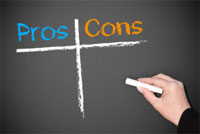Do You Really Want to Stop?
Goal
To become aware of the impact your substance use is having on yourself and others
Do You Really Want to Stop?
 Whatever your motivation for quitting or slowing your substance use may be, a time will come when that motivation is the only thing standing between your success and failure. Bottom line: motivation matters! It is important that you know exactly why you want to stop and really believe it. This beginning exercise will help you identify the problems your substance use has caused in your life.
Whatever your motivation for quitting or slowing your substance use may be, a time will come when that motivation is the only thing standing between your success and failure. Bottom line: motivation matters! It is important that you know exactly why you want to stop and really believe it. This beginning exercise will help you identify the problems your substance use has caused in your life.
Effects of Use on Self Exercise
Instructions (part 1): Highlight the problems you have encountered in each category. If you are experiencing problems from alcohol or drug use that are not included in these categories, add them.
Medical and health:
- Accidents
- Injuries
- Poor nutrition
- Weight gain or loss
- Increased risk of liver, heart, kidney, or lung diseases
- High blood pressure
- Sexual dysfunction
- Problems with menstrual cycle, pregnancy or childbirth
- Increased risk for STDs, HIV, or AIDS
- Premature death
Emotional:
- Anxiety
- Panic reactions
- Depression
- Mood swings
- Psychosis
- Feelings of anger or rage
- Suicidal thoughts, feelings, or behaviors
- Unpredictable behaviors
- Aggressiveness
- Violence
- Self-hatred
- Feelings of shame and guilt
- Low self-esteem
Work/School:
- Poor performance
- Lost jobs or dropping out of school
- Missing work or school
- Being undependable and less effective
- Loss of interest
- Ruined career
- Lost opportunities
Family:
- Lost relationships due to separation, divorce, or involvement of child welfare agencies
- Family distress and conflict
- Damaged family relationships
- Emotional burden on the family (anger, hurt, distrust, fear, worry, depression)
- Poor communication
- Perpetuation of substance use problems in children
Interpersonal Relationships:
- Lost or damaged friendships
- Interpersonal conflicts and dissatisfaction
- Loss of trust or respect of significant others
Recreational:
- Diminished interest in or loss of important hobbies or other leisure activities
Legal:
- Fines
- Legal constraints
- Arrests
- Convictions
- Jail or prison time
- Probation or parole
Economic:
- Loss of income
- Excessive debts
- Falling behind in or ignoring financial obligations
- Loss of security or home
- Inability to take care of basic needs for food or shelter
- Using up all financial resources
- Inability to manage money
Instructions (part 2): Look back over the problems you highlighted. Is the thought of improving in all of these ways enough to convince you that the journey to recovery, however tough, will be worth it? If so, read on. If not, read on as well!
Effects of Use on Others
 Looking at how other problems in your life may get better without drugs or alcohol can help you stay motivated to change, but it doesn’t give you the full picture. Your substance use not only affects you, but also those close to you. It is important to hear from those in your family what it has been like for them because of your substance use. This may be painful to hear, but it is important for “making amend s,” that is, taking specific steps to reduce the damage caused by the pain and substance use. It requires you to be patient, avoid being defensive or making excuses for what you have done, and accepting what they have to say. The good that this brings about can far outweigh the bad. If you can involve your family and close friends in your struggle to stay sober, you are much more likely to succeed. This is the first step.
Looking at how other problems in your life may get better without drugs or alcohol can help you stay motivated to change, but it doesn’t give you the full picture. Your substance use not only affects you, but also those close to you. It is important to hear from those in your family what it has been like for them because of your substance use. This may be painful to hear, but it is important for “making amend s,” that is, taking specific steps to reduce the damage caused by the pain and substance use. It requires you to be patient, avoid being defensive or making excuses for what you have done, and accepting what they have to say. The good that this brings about can far outweigh the bad. If you can involve your family and close friends in your struggle to stay sober, you are much more likely to succeed. This is the first step.
It is also important to deal directly with family or close friends who are continuing in the behaviors you are trying to quit. You may need to limit the time you spend around these people, and evaluate if the relationship is worth the stress and temptation. Admit your mistakes, be direct about your feelings, and involve family as necessary. Remember that important relationships require “give and take,” or compromise.
Effects of Use on Others Exercise
List the members of your family (and/or other people you consider to be close to you). Next to each one, describe the ways they have been affected by the behaviors related to your substance use. This will probably be done best if you ask them yourself and talk about it.
| Name | Ways Affected |
|---|---|
Weighing the Pros and Cons
 So now you hopefully have a “big picture” view of how using drugs and alcohol has impacted you and those close to you in ways you may not have known before. The question remains: is it worth the hardship to try and stop or cut back on using? We hope the following exercise will settle that question.
So now you hopefully have a “big picture” view of how using drugs and alcohol has impacted you and those close to you in ways you may not have known before. The question remains: is it worth the hardship to try and stop or cut back on using? We hope the following exercise will settle that question.
Weighing the Pros and Cons Exercise
Instructions: In the tables below, write the pros and cons of quitting and of continuing to use alcohol, tobacco, or other substances. Involve a good friend, family, or therapist to help you think through everything. Leave nothing out!
| Stopping or Remaining Abstinent | Immediate Consequences | Long-Term Consequences | Pros | Cons | Pros | Cons |
|---|---|---|---|
| Continuing to Use | Immediate Consequences | Long-Term Consequences | Pros | Cons | Pros | Cons |
|---|---|---|---|
Now, looking at the full picture, are you willing to do whatever it takes to come clean? To at least cut back significantly? If so, write down an agreement with the person you completed this exercise with.
Ask them to check up on you every day and keep you on track. Sure, it’s inconvenient, but - as you can see - the pros outweigh the cons.
